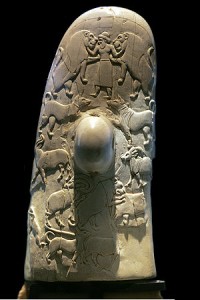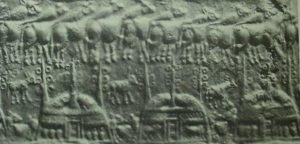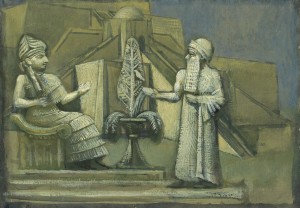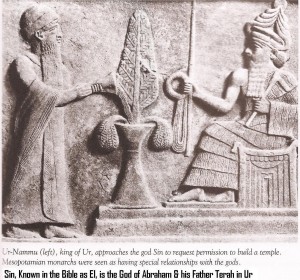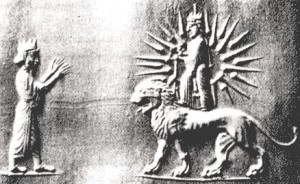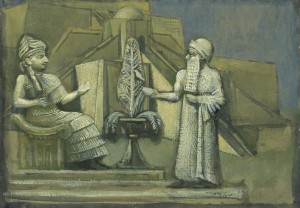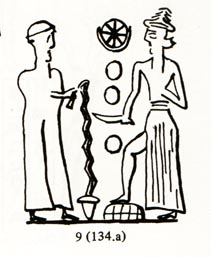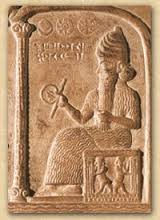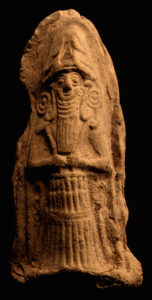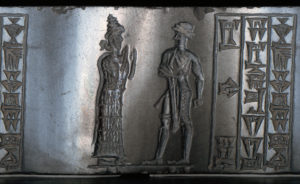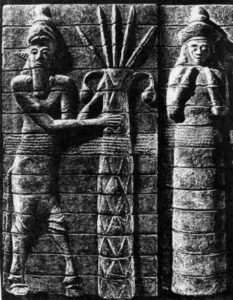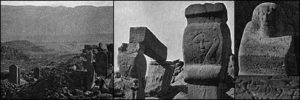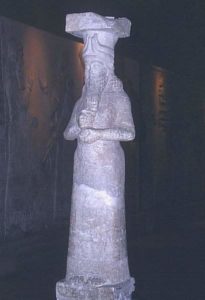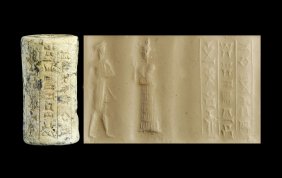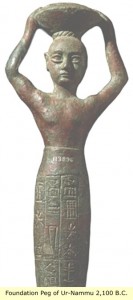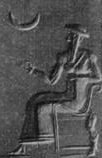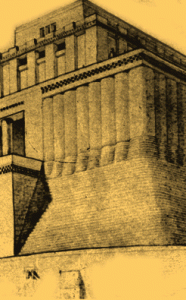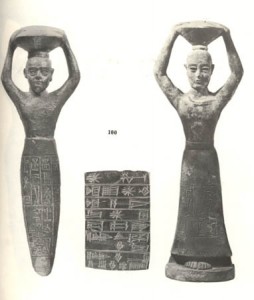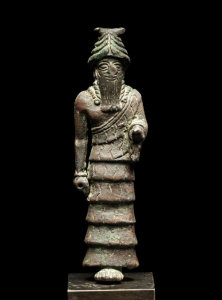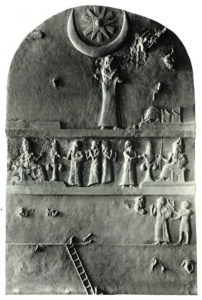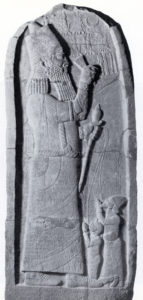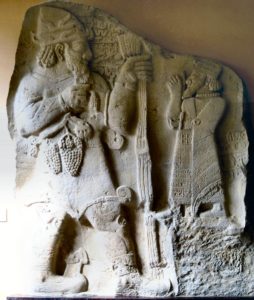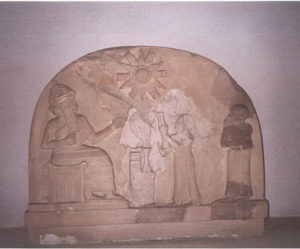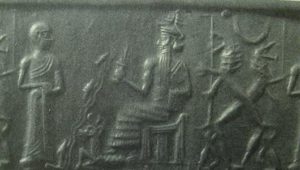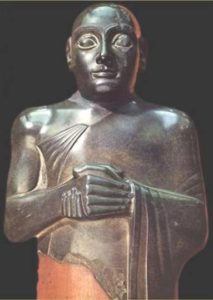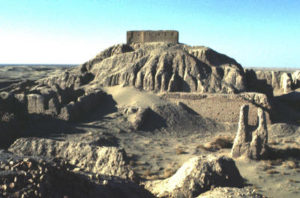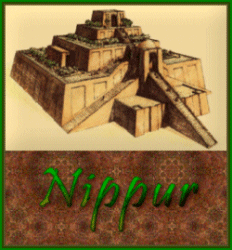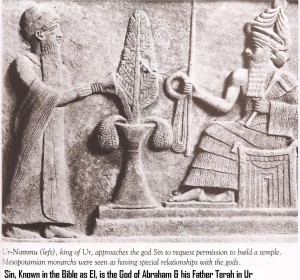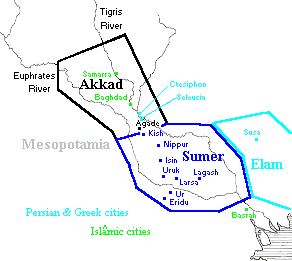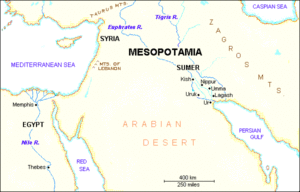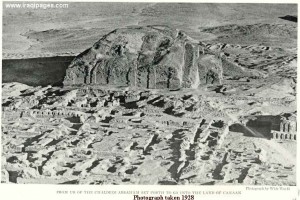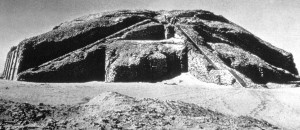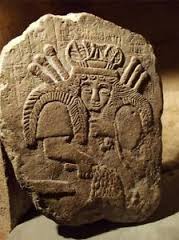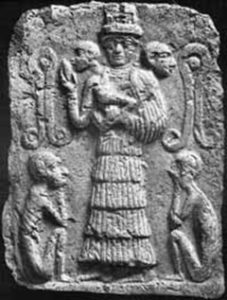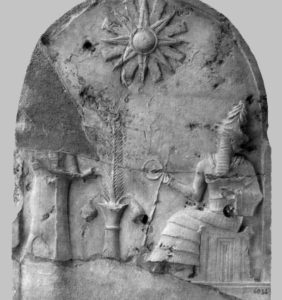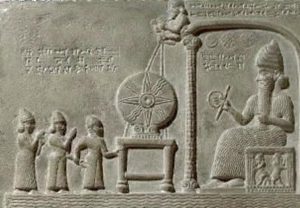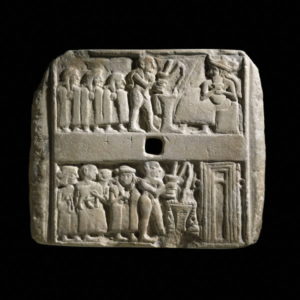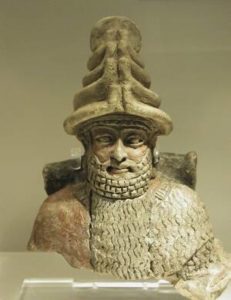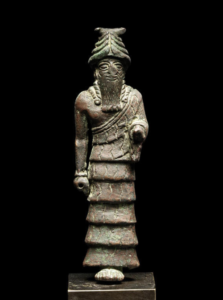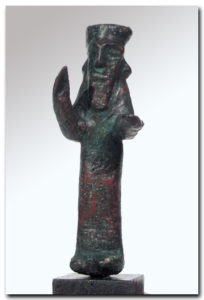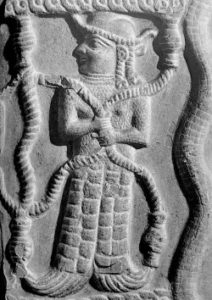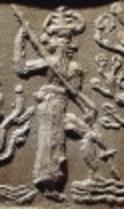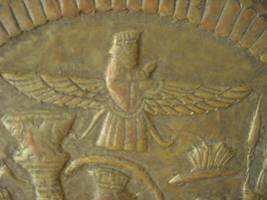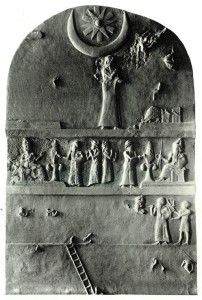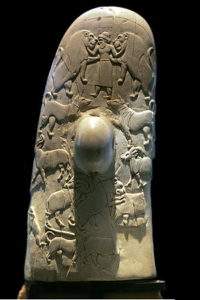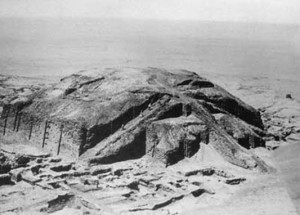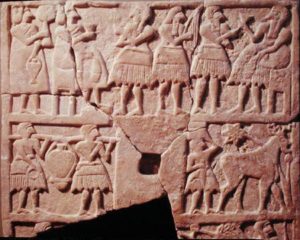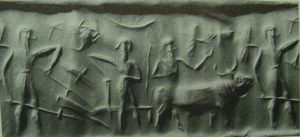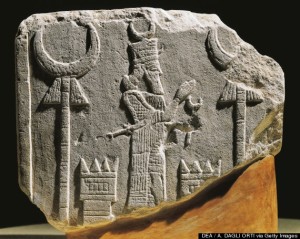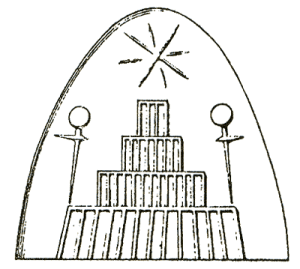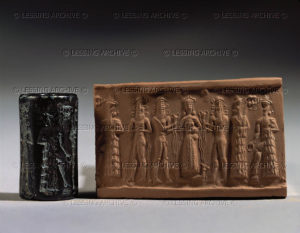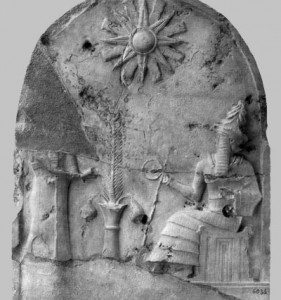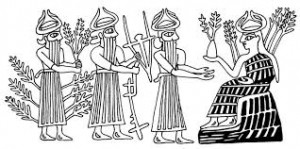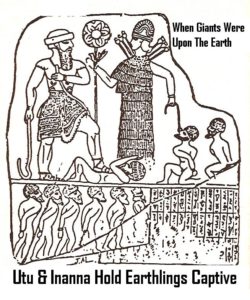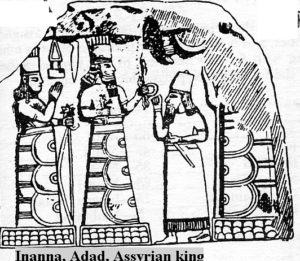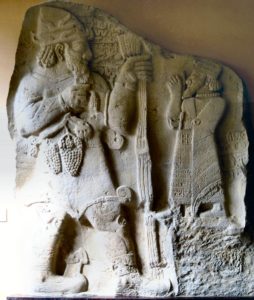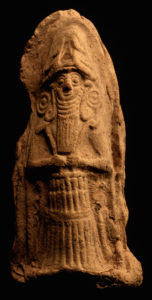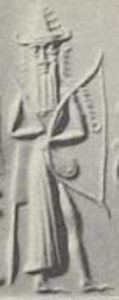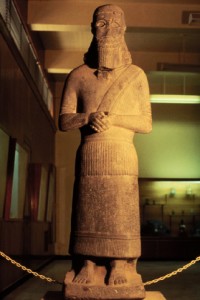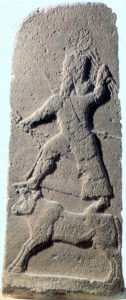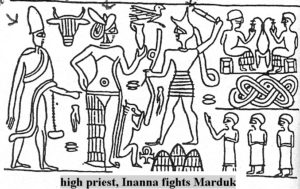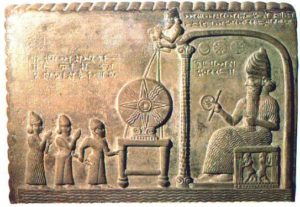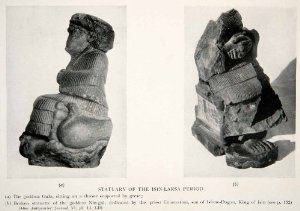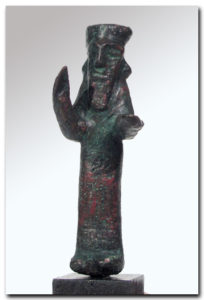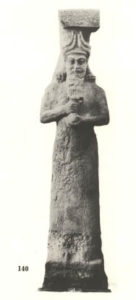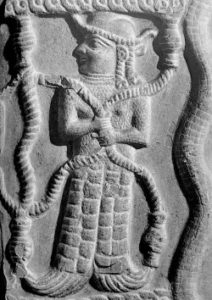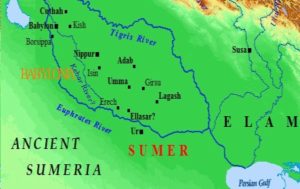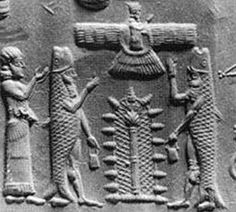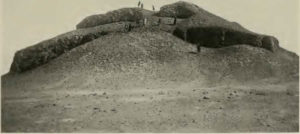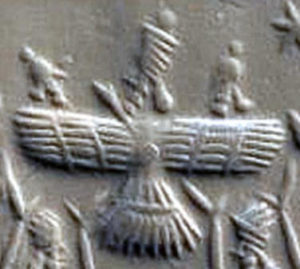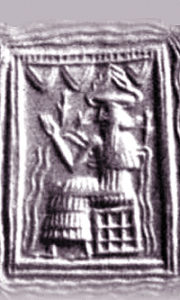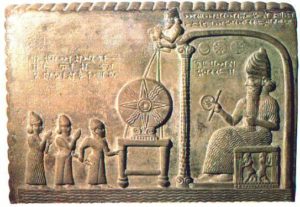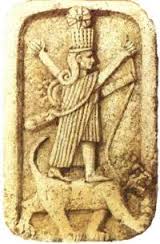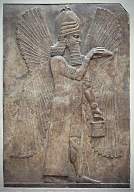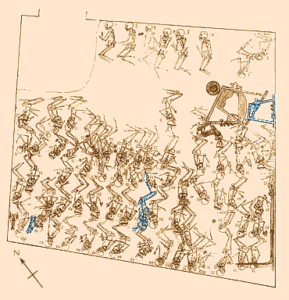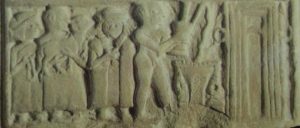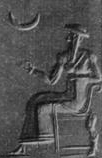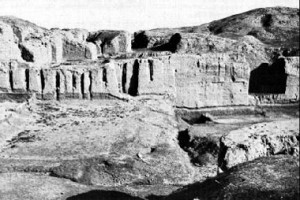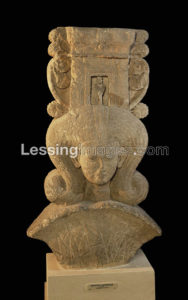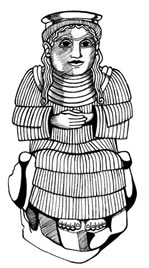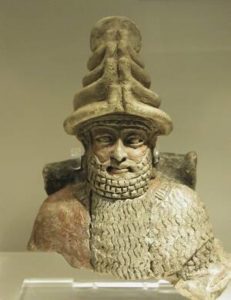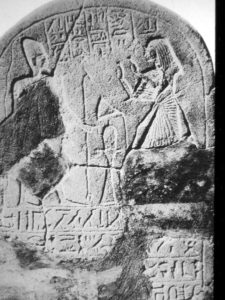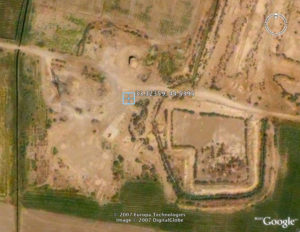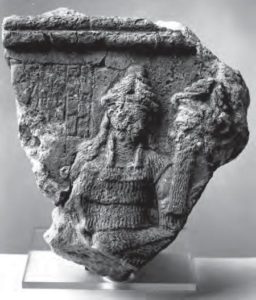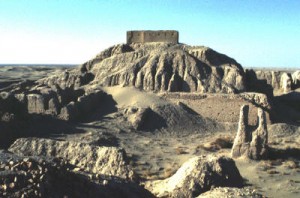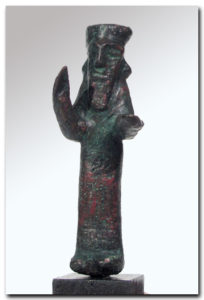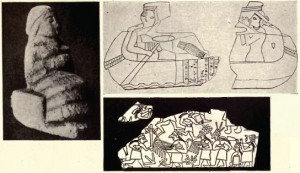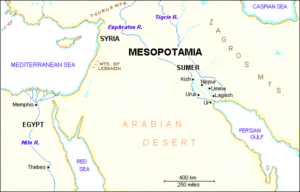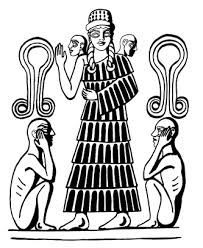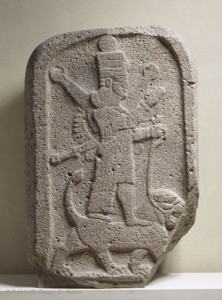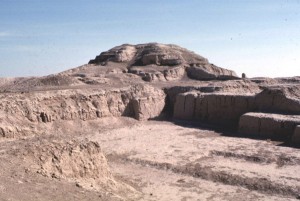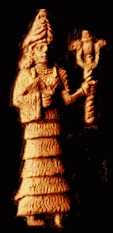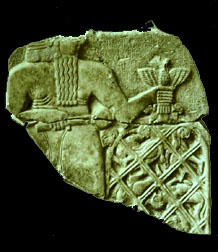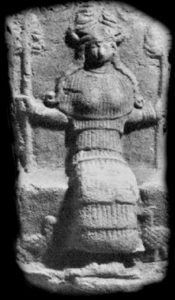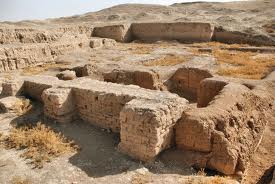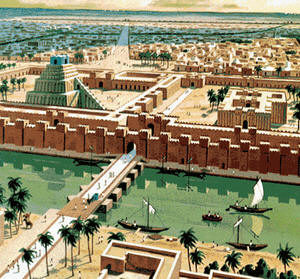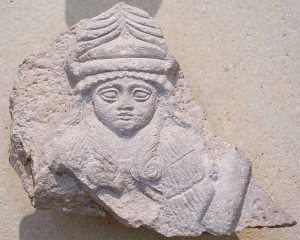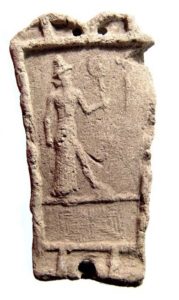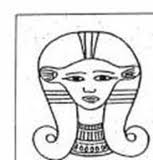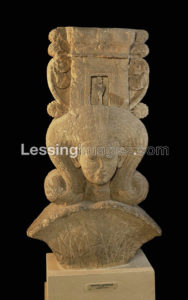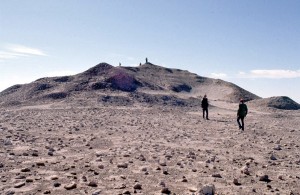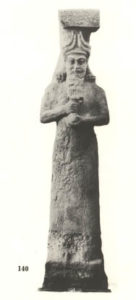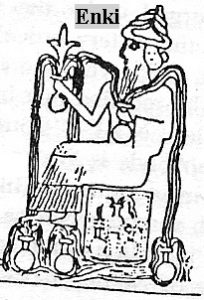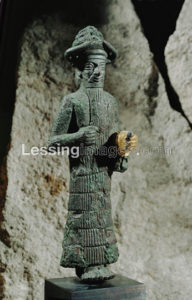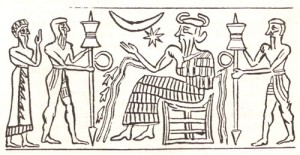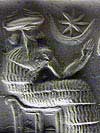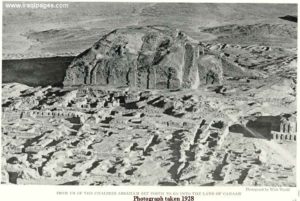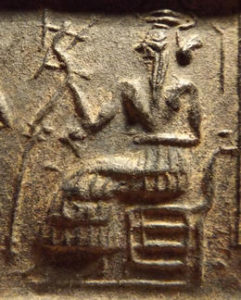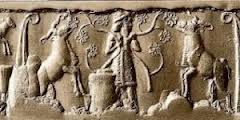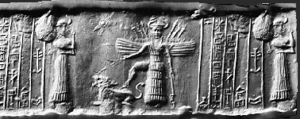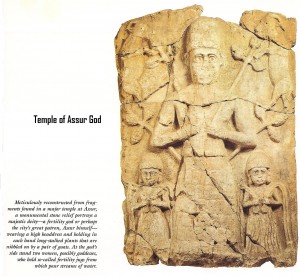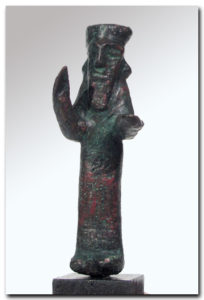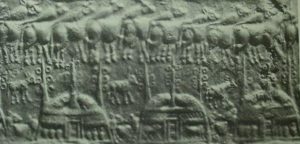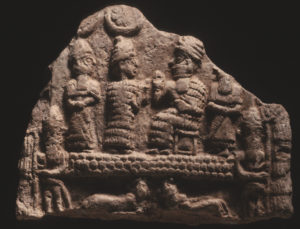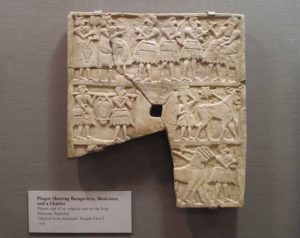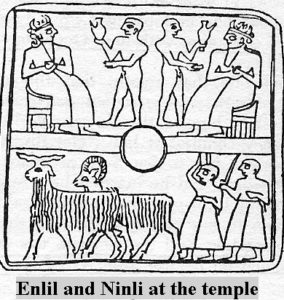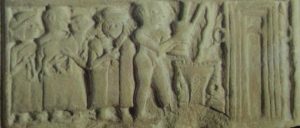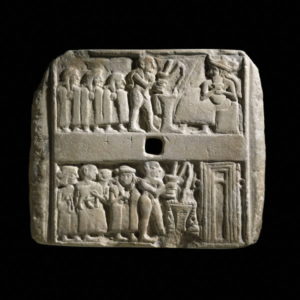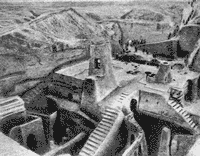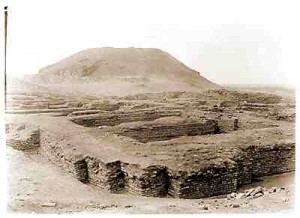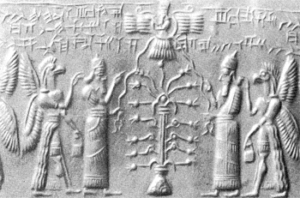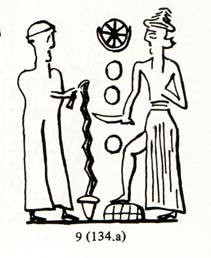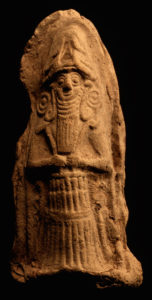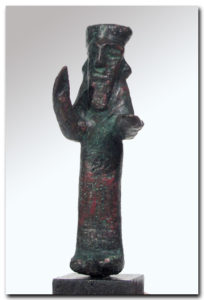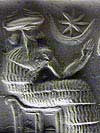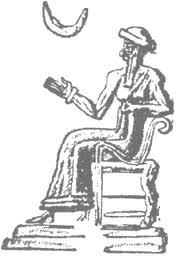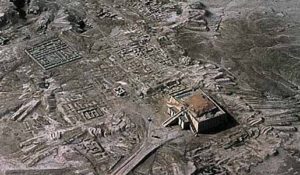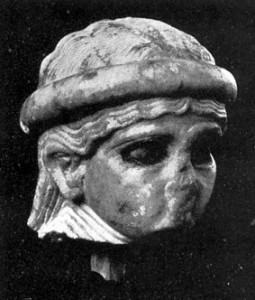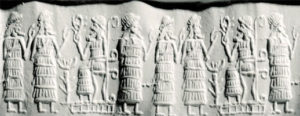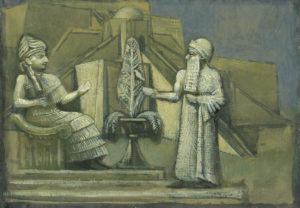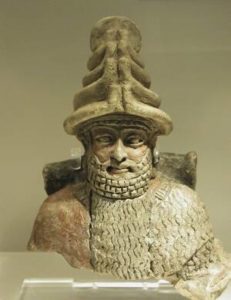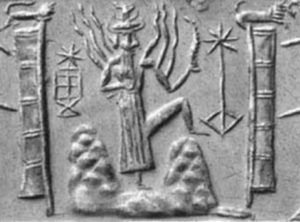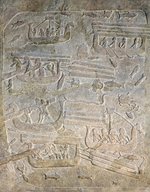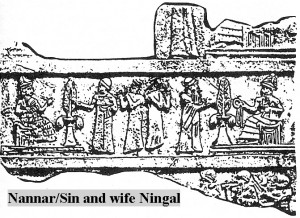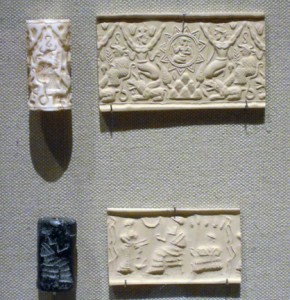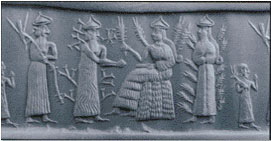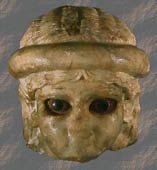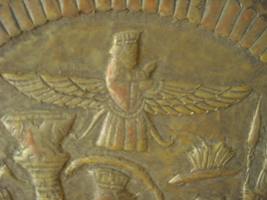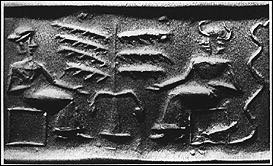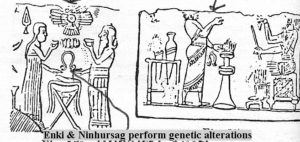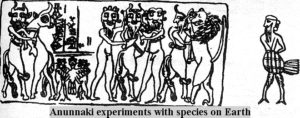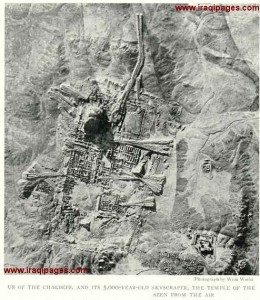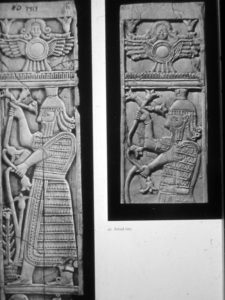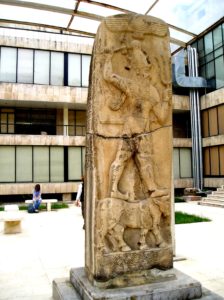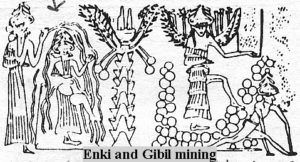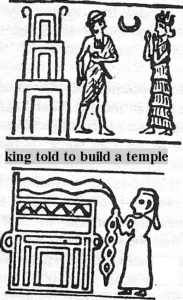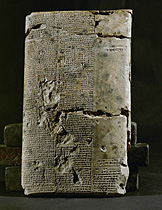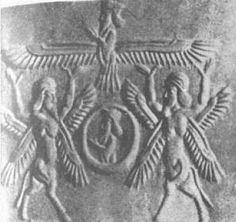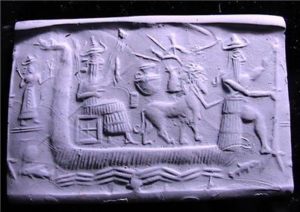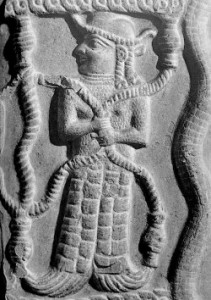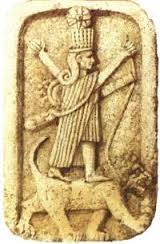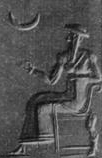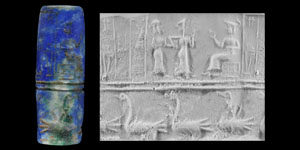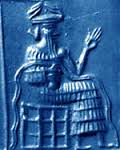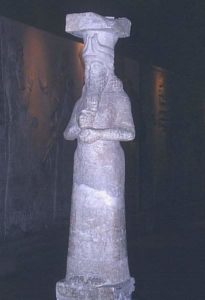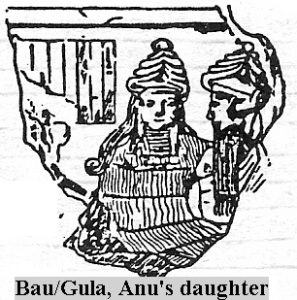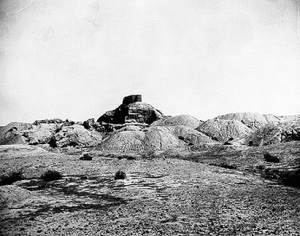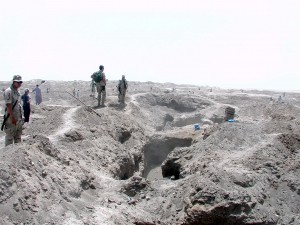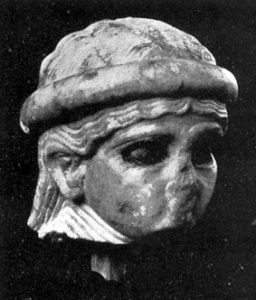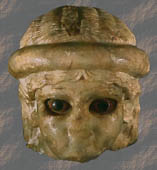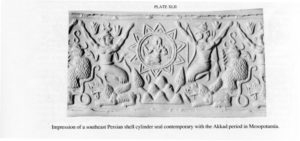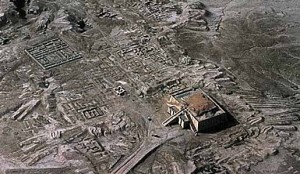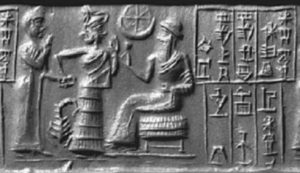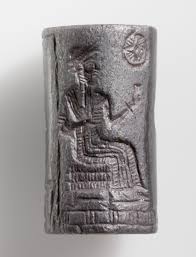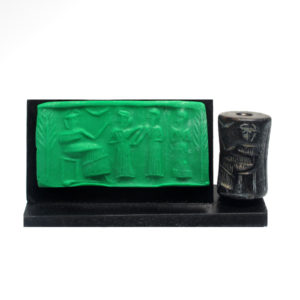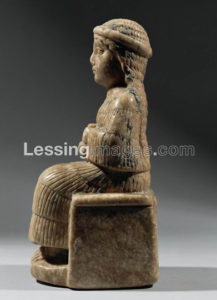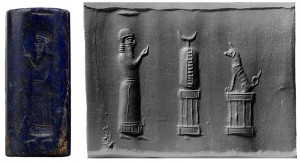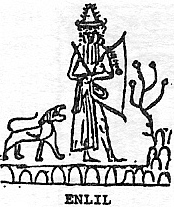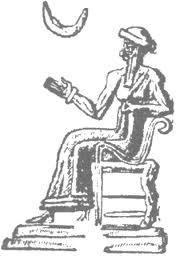The Electronic Text Corpus of Sumerian Literature
(Texts: All Artifacts, Color Coding, & Writings in Bold Type With Italics Inside Parenthesis, are Added by Editor R. Brown, not the Authors, Translators, or Publishers!)
(gods in blue …mixed-breed demigods in teal...)
A version from Nippur
1-7 …… entire land ……, ……. struck, the palace was devastated.
…… panic spread rapidly among the dwellings of the black-headed people.
…… abandoned places …… in Sumer.
…… the cities were destroyed in their entirety; the people were seized with panic.
Evil came upon Urim (Ur) and made the trustworthy shepherd pass away.
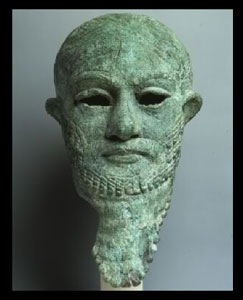 (Ur-Namma, giant son-king to Anunnaki goddess Ninsun & semi-divine Lugalbanda, = 2/3rds divine)
(Ur-Namma, giant son-king to Anunnaki goddess Ninsun & semi-divine Lugalbanda, = 2/3rds divine)
It made (King) Ur-Namma, the trustworthy shepherd, pass away; it made the trustworthy shepherd pass away.
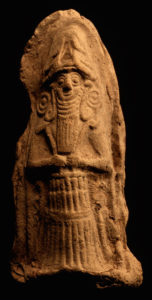
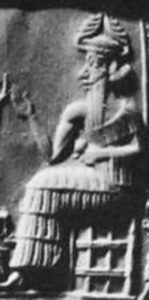 (King Anu of planet Nibiru; Enlil, Anu‘s son & heir, leader on Earth)
(King Anu of planet Nibiru; Enlil, Anu‘s son & heir, leader on Earth)
8-14 Because An (Anu) had altered his holy words completely, …… became empty,
and because, deceitfully, Enlil had completely changed the fate he decreed,
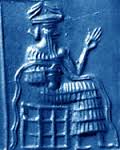
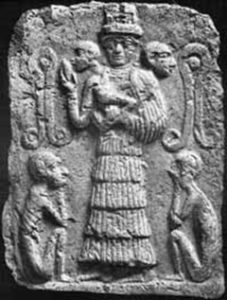 (Enki & sister-lover Ninhursag / Ninmah – “birth mother”)
(Enki & sister-lover Ninhursag / Ninmah – “birth mother”)
Ninmah (Ninhursag) began a lament in her ……. Enki shut (?) the great door of Eridug (Eridu, Enki‘s patron city).
Nudimmud (Enki) withdrew into his bedchamber and lay down fasting.
At his zenith, Nanna (Nannar) frowned at the …… words of An (Anu).
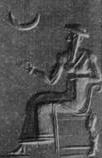
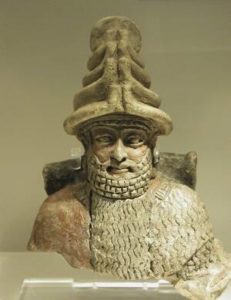 (Nannar the Moon Crescent God; son Utu the Sun God)
(Nannar the Moon Crescent God; son Utu the Sun God)
Utu did not come forth in the sky, and the day was full of sorrow.
15-21 The mother, miserable because of her son, the mother of the king, holy Ninsun, was crying: “Oh my heart!”.
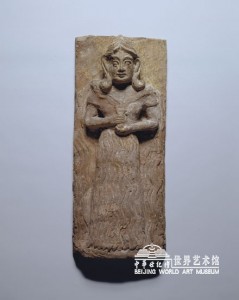 (Ninsun, mother to Ur-Namma & other giant mixed-breeds appointed to kingships)
(Ninsun, mother to Ur-Namma & other giant mixed-breeds appointed to kingships)
Because of the fate decreed for (King) Ur-Namma, because it made the trustworthy shepherd pass away,
she was weeping bitterly in the broad square, which is otherwise a place of entertainment.
Sweet sleep did not come to the people whose happiness ……;
they passed their time in lamentation over the trustworthy shepherd who had been snatched away.
22-30 As the early flood was filling the canals, their canal-inspector was already silenced (?);
the mottled barley grown on the arable lands, the life of the land, was inundated.
To the farmer, the fertile fields planted (?) by him yielded little.
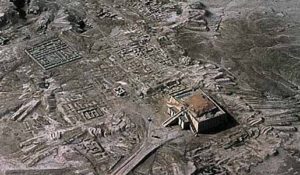 (Nannar’s house E-kishnugal & devastated city of Ur way below)
(Nannar’s house E-kishnugal & devastated city of Ur way below)
Enkimdu (unidentified?), the lord of levees and ditches, took away the levees and ditches from Urim (Ur).
1 line fragmentary
As the intelligence and …… of the Land were lost, fine food became scarce.
The plains did not grow lush grass any more, they grew the grass of mourning.
The cows ……, their …… cattle-pen has been destroyed.
The calves …… their cows bleated bitterly.
31-51 The wise shepherd …… does not give orders any more.
…… in battle and combat.
The king, the advocate of Sumer, the ornament of the assembly,
Ur-Namma, the advocate of Sumer, the ornament of the assembly, the leader of Sumer, …… lies sick.
His hands which used to grasp cannot grasp any more, he lies sick.
His feet …… cannot step any more, he lies sick.
1 line fragmentary
The trustworthy shepherd, king, the sword of Sumer, Ur-Namma, the king of the Land, was taken to the …… house.
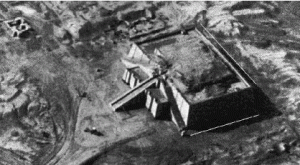 (Nannar‘s house E-kishnugal & city of Ur way below)
(Nannar‘s house E-kishnugal & city of Ur way below)
He was taken to Urim; the king of the Land was brought into the …… house.
The proud one lay in his palace.
Ur-Namma, he who was beloved by the troops, could not raise his neck any more.
The wise one …… lay down; silence descended.
As he, who was the vigor of the Land, had fallen, the Land became demolished like a mountain;
like a cypress forest it was stripped, its appearance changed.
As if he were a boxwood tree, they put axes against him in his joyous dwelling place.
As if he were a sappy cedar tree, he was uprooted in the palace where he used to sleep (?).
His spouse …… resting place; …… was covered by a storm; it embraced it like a wife her sweetheart (?).
His appointed time had arrived, and he passed away in his prime.
52-75 His (?) pleasing sacrifices were no longer accepted; they were treated as dirty (?).
The Anuna (Anannaki) gods refused his gifts.
An (Anu) did not stand by an “It is enough”, and he could not complete his (?) days.
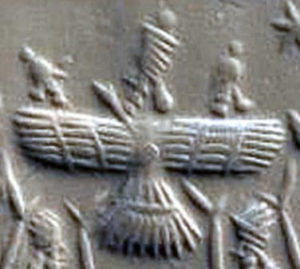 (Enlil, Anu, & Enki in his sky-disc traversing the skies of Sumer)
(Enlil, Anu, & Enki in his sky-disc traversing the skies of Sumer)
Because of what Enlil ordered, there was no more rising up; his beloved men lost their wise one.
Strangers turned into (?) …….
How iniquitously Ur-Namma was abandoned, like a broken jar!
His …… with grandeur like (?) thick clouds (?).
He does not …… any more, and he does not reach out for ……. “…… Ur-Namma, alas, what is it to me?”
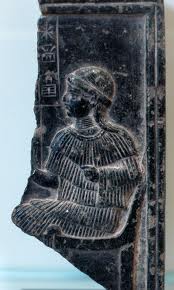 (Ninsun, mother to Ur-Namma & many others)
(Ninsun, mother to Ur-Namma & many others)
(King) Ur-Namma, the son of Ninsun, was brought to Arali, the …… of the Land, in his prime.
The soldiers accompanying the king shed tears:
their boat (with Ur-Namma) was sunk in a land as foreign to them as Dilmun.
…… was cut.
It was stripped of the oars, punting poles and rudder which it had.
……; its bolt was broken off.
…… was put aside; it stood (?) in saltpeter.
His donkeys were to be found with the king; they were buried with him.
His donkeys were to be found with Ur-Namma; they were buried with him.
As he crossed over the …… of the Land, the Land was deprived of its ornament.
The journey to the nether world is a desolate route.
Because of the king, the chariots were covered over,
the roads were thrown into disorder, no one could go up and down on them.
Because of Ur-Namma, the chariots were covered over,
the roads were thrown into disorder, no one could go up and down on them.
76-87 He presented gifts to the seven chief porters of the nether world.
As the famous kings who had died and the dead icib priests, lumah priests, and nindijir priestesses,
all chosen by extispicy, announced the king’s coming to the people, a tumult arose in the nether world.
As they announced Ur-Namma’s coming to the people, a tumult arose in the nether world.
The king slaughtered numerous bulls and sheep, Ur-Namma seated the people at a huge banquet.
The food of the nether world (Under-World of the dead) is bitter, the water of the nether world is brackish.
The trustworthy shepherd knew well the rites of the nether world, so the king presented the offerings of the nether world,
Ur-Namma presented the offerings of the nether world:
as many faultless bulls, faultless kids, and fattened sheep as could be brought.
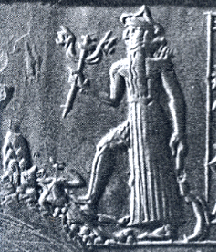 (Nergal, lord of the Under World)
(Nergal, lord of the Under World)
88-91 To Nergal, the Enlil (absolute ruler) of the nether world, in his palace,
the shepherd Ur-Namma offered a mace, a large bow with quiver and arrows,
an artfully made …… dagger, and a multi-colored leather bag for wearing at the hip.
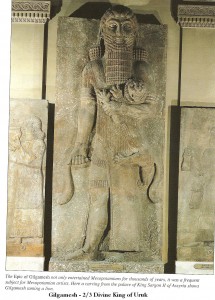 (Gilgamesh, king of Uruk 2,700 B.C.)
(Gilgamesh, king of Uruk 2,700 B.C.)
92-96 To Gilgamec (Gilgamesh), the king of the nether world, in his palace, the shepherd Ur-Namma offered a spear,
a leather bag for a saddle-hook, a heavenly lion-headed imitum mace,
a shield resting on the ground, a heroic weapon, and a battle-ax, an implement beloved of Ereckigala (Ereshkigal).
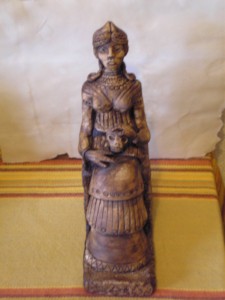 (Ereshkigal, Queen of the Under World, Nergal‘s spouse)
(Ereshkigal, Queen of the Under World, Nergal‘s spouse)
97-101 To Ereckigala, the mother of Ninazu, in her palace, the shepherd Ur-Namma offered a …… which he filled with oil,
a cajan bowl of perfect make, a heavy garment, a long-fleeced garment, a queenly pala robe, …… the divine powers of the nether world.
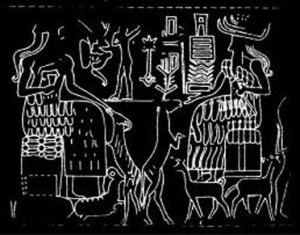 (Inanna & 1st spouse Dumuzi, the Shepherd)
(Inanna & 1st spouse Dumuzi, the Shepherd)
102-105 To Dumuzid, the beloved husband of Inanna, in his palace, the shepherd Ur-Namma offered a …… sheep,
……, mountain ……, a lordly golden scepter, …… a shining hand.
(1 ms. adds: He …… a gold and silver ……, a lapis-lazuli ……, and a …… pin to Dimpikug ……. )
106-109 To Namtar (Ereshkigal‘s son & visier), who decrees all the fates, in his palace,
the shepherd Ur-Namma offered perfectly wrought jewelery, a golden ring cast (?) as a …… barge,
pure cornelian stone fit to be worn on the breasts of the gods.
110-113 To Hucbisag, the wife of Namtar, in her palace, the shepherd Ur-Namma offered a chest (?) with a lapis-lazuli handle,
containing (?) everything that is essential in the underworld,
a silver hair clasp adorned with lapis-lazuli, and a comb of womanly fashion.
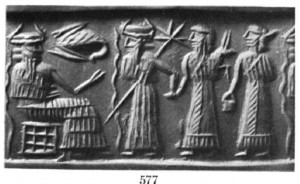 (Enki, Ningishzidda, semi-divine king & queen)
(Enki, Ningishzidda, semi-divine king & queen)
114-122 To the valiant warrior Ninjiczida (Ningishzidda), in his palace,
the shepherd Ur-Namma offered a chariot with …… wheels sparkling with gold,
…… donkeys, thoroughbreds, …… donkeys with dappled thighs, ……, followed …… by a shepherd and a herdsman.
To Dimpimekug (Ningishzidda‘s sister) (1 ms. has instead: Dimpikug), who stands by his side,
he gave a lapis-lazuli seal hanging from a pin, and a gold and silver toggle-pin with a bison’s head.
123-128 To his spouse, Ninazimua (Ningishzidda‘s spouse Azimua), the august scribe, denizen of Arali,
in her palace, the shepherd Ur-Namma offered a headdress with the august ear-pieces (?) of a sage, made of alabaster,
a …… stylus, the hallmark of the scribe, a surveyor’s gleaming line, and the measuring rod …….
129-131 To ……, the great …… of the nether world, he gave
2 lines fragmentary
132-144 After the king had presented properly the offerings of the nether world,
after Ur-Namma had presented properly the offerings of the nether world, the …… of the underworld,
the ……, seated Ur-Namma on a great dais of the nether world and set up a dwelling place for him in the nether world.
At the command of Ereckigala all the soldiers who had been killed by weapons
and all the men who had been found guilty were given into the king’s hands.
Ur-Namma was ……, so with Gilgamec, his beloved (younger) brother,
he will issue the judgments of the nether world and render the decisions of the nether world.
145-154 After seven days, ten days had passed, lamenting for Sumer overwhelmed my king, lamenting for Sumer overwhelmed Ur-Namma.
My king’s heart was full of tears, he …… bitterly that he could not complete the wall of Urim (Ur);
that he could no longer enjoy the new palace he had built; that he, the shepherd, could no longer …… his household (?);
that he could no longer bring pleasure to his wife with his embrace; that he could not bring up his sons on his knees;
that he would never see in their prime the beauty of their little sisters who had not yet grown up.
155-165 The trustworthy shepherd …… a heart-rending lament for himself:
“I, who have been treated like this, served the gods well, set up chapels for them.
I have created evident abundance for the Anuna (Anunnaki) gods.
I have laid treasures on their beds strewn with fresh herbs.
Yet no god stood by me and soothed my heart.
Because of them, anything that could have been a favorable portent for me was as far away from me as the heavens, the …….
What is my reward for my eagerness to serve during the days?
My days have been finished for serving them sleeplessly during the night!
Now, just as the rain pouring down from heaven cannot turn back, alas, nor can I turn back to brick-built Urim.
166-186 “Alas, my wife has become a widow (?)!
She spends the days in tears and bitter laments.
My strength has ebbed away …….
The hand of fate …… bitterly me, the hero.
Like a wild bull ……, I cannot …….
Like a mighty bull, …….
Like an offshoot …….
Like an ass ……, I died.
…… my …… wife …….
She spends the days in tears and bitter laments.
Her kind protective god has left her; her kind protective goddess does not care for her any more.
Ninsun no longer rests her august arm firmly on her head.
Nanna, lord Acimbabbar (Nannar), no longer leads (?) her by hand.
Enki, the lord of Eridug (Eridu), does not …….
Her …… has been silenced (?), she can no longer answer.
She is cast adrift like a boat in a raging storm; the mooring pole has not been strong enough for her.
Like a wild ass lured (?) into a perilous pit she has been treated heavy-handedly.
Like a lion fallen into a pitfall, a guard has been set up for her.
Like a dog kept in a cage, she is silenced.
Utu …… does not pay heed to the cries “Oh, my king” overwhelming her.
187-197 “My tigi, adab, flute and zamzam songs have been turned into laments because of me.
The instruments of the house of music have been propped against the wall.
Because I have been made to …… on a heap of soil (?) instead of my throne whose beauty was endless;
because I have been made to lie down in the open, desolate steppe instead of my bed,
the sleeping place whose …… was endless, alas, my wife and my children are in tears and wailing.
My people whom I used to command (?) sing like lamentation and dirge singers because of her (?).
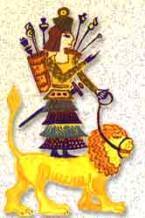 (Inanna Goddess of War, atop her zodiac symbol Leo)
(Inanna Goddess of War, atop her zodiac symbol Leo)
While I was so treated, foremost Inanna, the warlike lady, was not present at my verdict.
Enlil had sent her as a messenger to all the foreign lands concerning very important matters.“
198-216 When she had turned her gaze away from there,
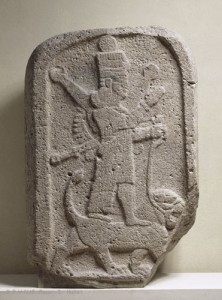 (Goddess of War Inanna, daughter to Nannar)
(Goddess of War Inanna, daughter to Nannar)
Inanna humbly entered the shining E-kur (Enlil‘s temple residence in Nippur), she …… at Enlil‘s fierce brow.
(Then Enlil said:) “Great lady of the E-ana (Inanna‘s temple residence in Uruk), once someone has bowed down,
he cannot …… (?) any more; the trustworthy shepherd left E-ana, you cannot see him any more.”
My lady …… among the people ……(1 ms. has instead: like ……).
Then Inanna, the fierce storm, the eldest child of Suen (Sin / Nannar), ……,
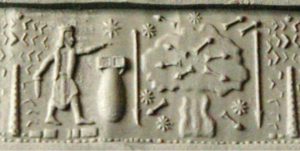 (giant alien Goddess of War)
(giant alien Goddess of War)
made the heavens tremble, made the earth shake.
Inanna destroyed cattle-pens, devastated sheepfolds, saying: “I want to hurl insults at An (Anu), the king of the gods:
Who can change the matter, if Enlil elevates someone?
Who can change the import of the august words uttered by An, the king?
If there are divine ordinances imposed on the Land,
but they are not observed, there will be no abundance at the gods’ place of sunrise.
My holy jipar, the shrine E-ana, has been barred up like (?) a mountain (some mss. have instead: like the heavens).
If only my shepherd could enter before me in it in his prime —
I will not enter it otherwise! (some mss. have instead: Why should I enter it otherwise?)
If only my strong one could grow for me like grass and herbs in the desert.
If only he could hold steady for me like a river boat at its calm mooring.”
This is how Inanna…… a lament over him (1 ms. has instead: …… Ur-Namma ……)
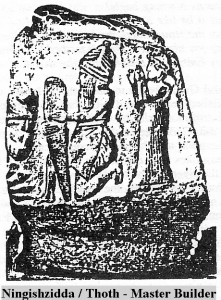 (Ningishzidda & semi-divine mixed-breed king)
(Ningishzidda & semi-divine mixed-breed king)
217-233 Lord Ninjiczida ……. Ur-Namma, my …… who was killed,
1 line fragmentary
Among tears and laments, …… decreed a fate for Ur-Namma: “Ur-Namma ……, your august name will be called upon.
From the south to the uplands, …… the holy scepter.
Sumer …… to your palace.
The people will admire …… the canals which you have dug,
the …… which you have ……, the large and grand arable tracts which you have ……,
the reed-beds which you have drained, the wide barley fields which you ……,
and the fortresses and settlements which you have ……. Ur-Namma, they will call upon …… your name.
Lord Nunamnir (Enlil), surpassing ……, will drive away the evil spirits ……”
234-242 After shepherd Ur-Namma……, Nanna, lord Acimbabbar (Nanna), ……,
Enki, the (god) king of Eridug ……. …… devastated sheepfolds …… (the other ms. has instead: …… the foremost, the flood ……).
…… holy ……, lion born on high (the other ms. has instead: …… basket (?) ……).
…… your city; renders just judgments.
……, lord Ninjiczida (Ningishzidda) be praised!
My king …… among tears and laments; …… among tears and laments.
A version from Susa:
SEGMENT A
approx. 10 lines missing
1-4 1 line fragmentary
…… frowned at ……. ……, the day was full of sorrow.
…… withdrew into his bedchamber and lay down fasting.
5-11 The mother, wretched (?) because of her son, …… the mother of the king (Ur-Namma), holy Ninsun, was crying:
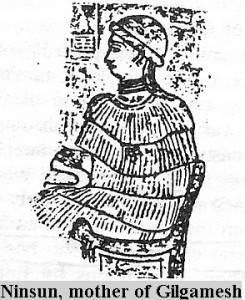 (Ninsun, daughter to Ninurta & Bau)
(Ninsun, daughter to Ninurta & Bau)
“Oh my heart!”. She was weeping bitterly in the broad square, which is otherwise a place of entertainment,
that the fate of Ur-Namma had been overturned and that the trustworthy shepherd had been made to pass away.
She spent the day in lamentation over the trustworthy shepherd who had been snatched away.
Sweet sleep did not (?) come to the people whose happiness had come to an end.
12-19 As the early flood was filling the canals, their canal-inspector …….
The mottled barley come forth on the arable lands, the life of the land, …….
To the farmer, the fertile fields ……. Enkimdu (unidentified?), the lord of levees and ditches, …….
…… its numerous people ……. …… of the Land …….
The plains …… fine grass ……. ….. heavy cows ……
approx. 4 lines missing
SEGMENT B
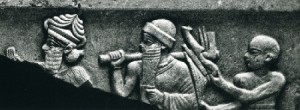
(Ninurta Ur-Namma earthling cup-bearer)
1-13 Ur-Namma …….
His hands which used to grasp, cannot …….
His feet which used to tread, …….
1 line unclear
The trustworthy shepherd, the king, the …… of Sumer, Ur-Namma, …….
As he himself was going to Urim (Ur), Ur-Namma …… house.
The proud one lying in the palace, Ur-Namma, who …… by the troops (?), …….
He could not rise any more, the wise one of the countries lay down; silence …….
As he, who was the vigor of the Land, has fallen, the land became demolished like a mountain.
As he, a cypress forest, was felled, the state of the Land became confused.
As he, the cedar tree of the Land, was uprooted, the state of the Land became altered.
Axes (?) were set against him, a boxwood tree, in his joyous dwelling place.
His appointed time arrived, and he passed away in his prime.
14-22 His (?) pleasing sacrifices were no longer accepted; they were treated as dirty (?).
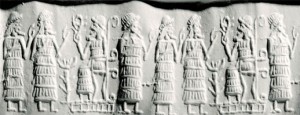 (alien giants called gods)
(alien giants called gods)
The Anuna (Anunnaki) gods did not reach out for his gifts any more.
…… did not stand by an (?) “It is enough”, his (?) days were not prolonged.
……, there was no more rising up.
Ur-Namma, a broken jar, was abandoned at …….
3 lines unclear
“……, what is it to me?”
approx. 5 lines missing
SEGMENT C
1-10 3 lines unclear
…… the bolt ……. …… sat (?) in saltpeter.
……, the roads were thrown into disorder, no one could go up and down on them;
……, the roads were thrown into disorder, no one could go up and down on them.
…… is a long route.
…… the way ……. …… the journey to the nether world …….
11-20 …… gifts ……. …… chief porters …….
…… who died ……, …… dead nindijir priestesses, chosen by extispicy,
1 line unclear
…… raised a tumult ……; …… raised a tumult …….
The king knew well the rites of the nether world, Ur-Namma knew well the rites of the nether world:
so he brought magnificent bulls, faultless kids, and fattened sheep.
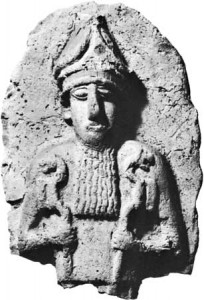 (Nergal, lord of the Under World)
(Nergal, lord of the Under World)
21-24 To Nergal, the Enlil of the nether world, in his palace, the shepherd Ur-Namma offered a mace,
a large bow with quiver and arrows, a large …… dagger, and a multi-colored leather bag for wearing at the hip.
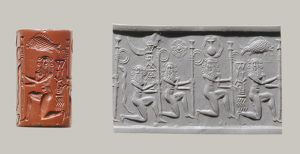 (Gilgamesh, younger brother to Ur-Namma)
(Gilgamesh, younger brother to Ur-Namma)
25-28 To Gilgamec, the king of the nether world, in his palace, the shepherd Ur-Namma offered a spear,
a leather bag for (?) the saddle-hook ……, a heavenly lion-headed mitum mace,
a shield resting on the ground, and a battle-ax, an implement beloved of Ereckigala (Ereshkigal).
 (Ereshkigal, Queen of the Under World, Nergal‘s spouse)
(Ereshkigal, Queen of the Under World, Nergal‘s spouse)
29-32 To Ereckigala, the mother of Ninazu ……, in her palace, the shepherd Ur-Namma offered a …… with oil,
a cajan bowl of perfect make, a royal ……, …… the divine powers (alien technologies) of the nether world …….
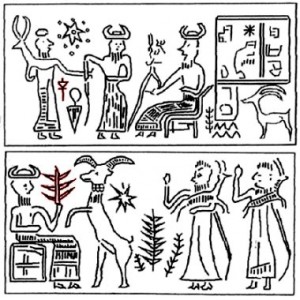 (Dumuzi the Shepherd, 1st spouse to Inanna)
(Dumuzi the Shepherd, 1st spouse to Inanna)
33-37 To Dumuzid (Dumuzi), the beloved husband of Inanna, in his palace, the shepherd Ur-Namma offered alum sheep,
long-fleeced sheep, big mountain he-goats, a lordly …… of manu wood fit for a shining hand,
and shepherd’s staff and crook of manu wood, fit for a lord.
38-41 To Namtar (Ereshkigal‘s son), who decrees all (?) the fates, in his palace,
the shepherd Ur-Namma offered perfectly wrought jewelery,
a golden ring cast (?) as a …… barge, pure cornelian stone …… of the gods.
42-45 To Hucbisag, the wife of Namtar, in her palace, the shepherd Ur-Namma offered a chest with a lapis-lazuli handle,
containing (?) everything that is essential in the underworld,
a hair clasp adorned with lapis-lazuli, and seven (?) combs of womanly fashion.
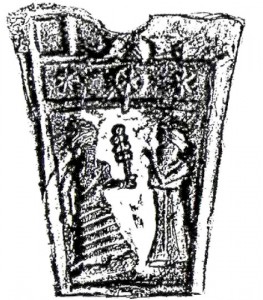 (Ningishzidda & Ur-Namma’s younger brother Gudea)
(Ningishzidda & Ur-Namma’s younger brother Gudea)
46-50 To …… Ninjiczida, in his palace, the shepherd Ur-Namma offered a …… sparkling with ……,
……. donkeys that bray loudly (?), followed by …….
51-56 To …… Ninazimua (Ningishzidda‘s spouse Azimua), …… denizen of Arali,
and to Jectin-ana,(Geshtinanna) the king’s (1/2) sister,
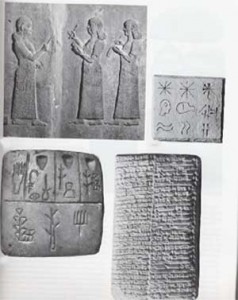 (singer & scribe Geshtinana, full sister to Dumuzi, 1/2 sister to Ur-Namma)
(singer & scribe Geshtinana, full sister to Dumuzi, 1/2 sister to Ur-Namma)
in her palace, the shepherd Ur-Namma offered a ……, the hallmark of the scribe, ……, a peg and the measuring rod …….
57-60 To Dimpimekug, (Ningishzidda‘s sister) who stands at the right and the left (?),
the shepherd Ur-Namma …… and offered in her (?) palace a golden and silver toggle-pin with a bison’s head,
and a lapis-lazuli seal with a golden edge and a pin of refined silver.
61-63 To ……, the great ensi (high-priest) of the nether world he brought the magnificent bulls, faultless kids,
and fattened sheep that he had; in his palace the shepherd Ur-Namma offered them.
64-72 After the offerings were presented to the great …… of the underworld,
the Anuna, they (?) seated Ur-Namma on a great dais of the nether world
and set up a dwelling place for him in the nether world.
At the command of Ereckigala, with (?) Gilgamec, his beloved brother, he will pass the judgments of the nether world
and render the …… decisions concerning (?) all the men who fell by weapons and all the men who …… guilty.
73-88 After five days, ten days had passed, lamenting for Sumer overwhelmed my king, lamenting for Sumer overwhelmed Ur-Namma.
As he could not complete the wall of Urim; as he could no longer enjoy the new palace he had built;
as he, the shepherd, could no longer protect (?) his household; as he could no longer bring pleasure to his wife with his embrace;
as he could not bring up his sons on his knees; as he would never see in their prime the beauty of their little sisters,
who are yet to grow up, the trustworthy shepherd uttered a heart-rending lament for himself:
“I, who ……, who ……,
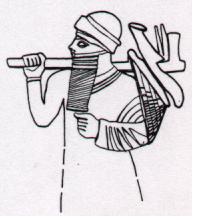 (Ur-Namma worker-king for the alien gods)
(Ur-Namma worker-king for the alien gods)
…… for the great gods, I have set up chapels for them.
I have created evident abundance for the Anuna gods.
I have …… treasures to their …… shining thrones.
…… a favorable portent for me, was …… as the nether world or the heavens …….
1 line fragmentary
approx. 7 lines missing
SEGMENT D
1-11 “…… guard ……. …… silence ……. …… adab, flute and zamzam songs …… laments.
…… have been propped against the wall.
Because I have been made to sit on …… whose beauty was endless; because I have been made to fall in …… was endless,
1 line fragmentary
Maiden Inanna, the warlike lady (Goddess of War),……. Enlil had sent her as a messenger to all the great mountains.”
12-20 When she had turned her gaze away from there,
the trustworthy shepherd had left the E-ana, and she (?) could not see him any more.
She …… at Enlil‘s fierce brow.
Antagonistically (?) she insulted An, the king of the gods: “When An, the king speaks, his words cannot be changed!
…… Ur-Namma …….
There will be no …… at the gods’ place of sunrise.
…… holy jipar, shrine E-ana …… …… not enter …….
